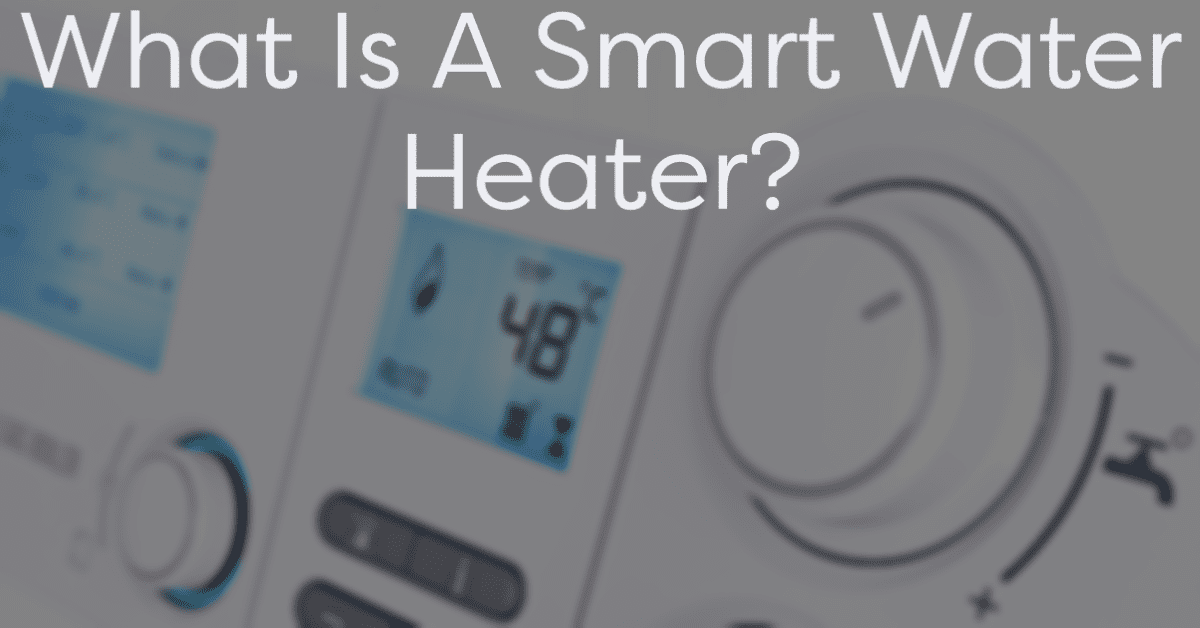It’s hard for us to imagine, but a mere 100 years ago, we had to heat it on the stove if we wanted hot water. Taking a hot bath at the dawn of the twentieth century required you to heat buckets and kettles of water and then transfer that water to a tub. Talk about an inconvenience. To make matters even worse, the idea of being able to take a hot shower in your home was merely a dream until the 1940s, when residential water heaters became more commonplace.
Hot water isn’t merely a luxury; it is a necessity for our daily lives. Cooking, bathing, washing clothes, and cleaning our homes would be much less pleasant (as well as less effective) were it not for our water heaters. For an appliance that is as important as our water heaters, we’ve never given them much thought unless they start to cause a problem.
When was the last time you thought about your water heater since it was installed?
Exactly.
Now, instead of being forgotten and lonely in a garage or attic, you can interact with your water heater, making it more of a family member and less of an inanimate object.
What is a Smart Water Heater, and Why Do I Need One?
As I’m sure you’re aware, everything is becoming “smart” these days. TVs, phones, tablets, cars, and even watches are becoming internet-enabled, allowing us to interact with more of our appliances. Smart water heaters allow you to monitor and adjust your water temperature and control when water is heated, either based on a schedule you choose or by learning your home’s habits.
By programming your smart water heater to only heat water during the times of the day when you need more hot water, instead of aimlessly reheating the same water over and over, you can save as much as 30% on energy costs each month. Smart water heaters are controlled by an app installed on your smartphone or tablet, using either wi-fi or Bluetooth to connect. The apps used to control the water heater can also monitor hot water usage, energy consumption, and the unit’s overall health.
Is It Worth Upgrading to a Smart Water Heater Now?
The average water heater has an expected lifespan of seven to twelve years, based on where it is housed, how it is maintained, and its use. For homeowners that are content with their current water heater, there’s no reason to replace it simply to add “smart” features. In looking at the current prices of new water heaters, it appears that incorporating smart technology has almost no effect on cost. I was able to find several 40 – 50-gallon smart water heaters in the $500 – 600 range from Rheem, all the way up to a $2,500 A.O. Smith 80-gallon unit with dual heating elements and a hybrid heat pump. The marketing material for the A.O. Smith unit claims that its combined technologies can save you as much as 72% each month on energy bills, with these savings effectively paying for the unit in under two years.
Does My New Water Heater HAVE to Be Smart?
No, there are plenty of water heaters on the market whose sole purpose is to be a large cylindrical tank of water that speaks to no one. Homeowners have always had a “set it and forget it” mentality about water heaters, and that is still possible, but with Smart units being about the exact cost as “dumb” ones (for lack of a better term), there’s no actual
justification to not install one.
Have any questions about smart water heaters and how they can help you save money and reduce your carbon footprint? Give Nick’s Plumbing & Air Conditioning a call today for an evaluation or a second opinion about any new water heater installation. We offer Rheem, A.O. Smith, and Rinnai tank-type and tankless water heaters and have the expertise to install them to your satisfaction the first time.
Call Nick’s Today. We’re on the Way.


























